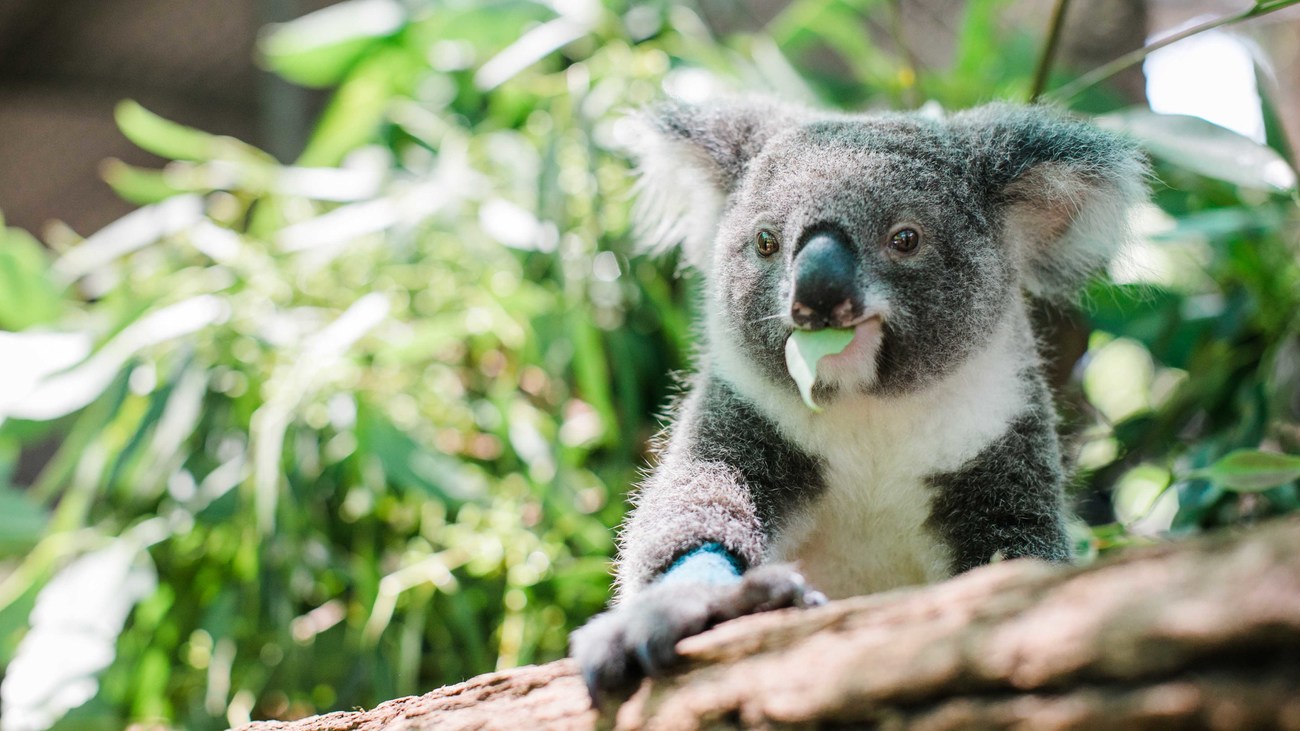Koala Habitat Protection with Detection Dogs - Australia
In Australia, detection dogs are koalas’ best friendkoala endangered listing is a grim but important decision
koala endangered listing is a grim but important decision

Sydney, 11 February, 2022 — The decision to list koalas as an endangered species on Australia’s east coast is a grim but important outcome that requires urgent action, according to animal welfare and conservation groups.
Today’s announcement by Environment Minister Sussan Ley follows a joint nomination by the International Fund for Animal Welfare (IFAW), Humane Society International (HSI) and WWF-Australia in March 2020 to the federal Threatened Species Scientific Committee.
The decision means koala populations in Queensland, New South Wales and the Australian Capital Territory will now be classified as Endangered under the Environment Protection and Biodiversity Conservation Act (EPBC Act) 1999, and recognises the koala is one step further along the pathway to extinction. Without stronger protections, east coast koalas are at risk of disappearing altogether.
IFAW, HSI and WWF-Australia thanked Minister Ley for listening to the environmental sector and making this much-needed decision based on the science. The three organisations submitted strong evidence to support the nomination including scientific reports by ecological consultants Biolink, which revealed Queensland’s koala population has crashed by an estimated 50% since 2001, and up to 62% of the NSW koala population has been lost over the same period.
IFAW Wildlife Campaign Manager Josey Sharrad said koalas are an international and national icon, but were living on a knife edge before the Black Summer bushfires with numbers in severe decline due to land-clearing, drought, disease, car strikes and dog attacks.
“This decision is a double-edged sword. We should never have allowed things to get to the point where we are at risk of losing a national icon. If we can’t protect an iconic species endemic to Australia, what chance do lesser known but no less important species have?” Miss Sharrad said.
“The bushfires were the final straw. This must be a wake-up call to Australia and the government to move much faster to protect critical habitat from development and land-clearing and seriously address the impacts of climate change.”
WWF-Australia conservation scientist Dr Stuart Blanch said the endangered listing must be a turning point for koalas and called on federal and state governments to commit to doubling koala numbers on the east coast by 2050.
“Koalas have gone from no-listing to vulnerable to endangered within a decade. That is a shockingly fast decline. Today’s decision is welcome, but it won’t stop koalas from sliding towards extinction unless it’s accompanied by stronger laws and landholder incentives to protect their forest homes,” said Dr Blanch.
“Koala numbers have halved in the past 20 years and new SLATS data shows land clearing is continuing in Queensland at an alarming rate. We must turn this trend around and instead double the number of east coast koalas by 2050. Australia must complete the transition out of deforestation and native forest logging to become a world leader in forest protection and restoration.”
Alexia Wellbelove, Senior Campaign Manager for HSI, said, “This uplisting is an urgent cue for governments to take a stand against the continued clearing of koala habitat. If business as usual continues, extinction is predicted for east coast koalas by 2050. Unless we want to say goodbye for good we can’t afford any more clearing.”
The decision comes just 10 years after koala populations in Queensland, NSW and the ACT were listed Vulnerable under the EPBC Act in May 2012.
Since then, koalas have suffered relentless ongoing pressure. Land clearing has ramped up, increasing 13-fold in NSW since the government weakened native vegetation laws in 2016. South East Queensland’s koala population is also projected to shrink to fewer than 8,000 by 2032, when the eyes of the world will be fixed on Brisbane as it hosts the Olympic Games.
ENDS
Photos and videos can be found here.
NOTES
· Koala populations in Queensland, NSW and the ACT were listed Vulnerable under the Australian government’s EPBC Act in May 2012. Since then, koalas have suffered relentless ongoing pressure. Land clearing has ramped up, increasing 13-fold in New South Wales since the government weakened native vegetation laws in 2016.
· In March 2020, IFAW put in a separate joint nomination to the New South Wales Threatened Species Scientific Committee for an emergency up-listing for the state's koalas. IFAW is disappointed this did not happen and we urge the New South Wales government and Threatened Species Scientific Committee to follow suit and list koalas as Endangered under state legislation.
· The scientific reports which formed the basis of the nominations were published by ecological consultants Biolink.
· An IFAW petition supporting greater protections for koalas has garnered support from more than 250,000 people across the world.
· Australia is already facing an extinction crisis and has lost more biodiversity than any other developed nation in the past 200 years.
Press Contact
IFAW Australia
Dominica Mack
m: +61 460 432 901
e: dmack@ifaw.org
About the International Fund for Animal Welfare (IFAW) - The International Fund for Animal Welfare is a global non-profit helping animal and people thrive together. We are experts and everyday people, working across seas, oceans and in more than 40 countries around the world. We rescue, rehabilitate and release animals, and we restore and protect their natural habitats. The problems we’re up against are urgent and complicated. To solve them, we match fresh thinking with bold action. We partner with local communities, governments, non-governmental organisations and businesses. Together, we pioneer new and innovative ways to help all species flourish. See how at ifaw.org
Related content
Every problem has a solution, every solution needs support.
The problems we face are urgent, complicated, and resistant to change. Real solutions demand creativity, hard work and involvement from people like you.